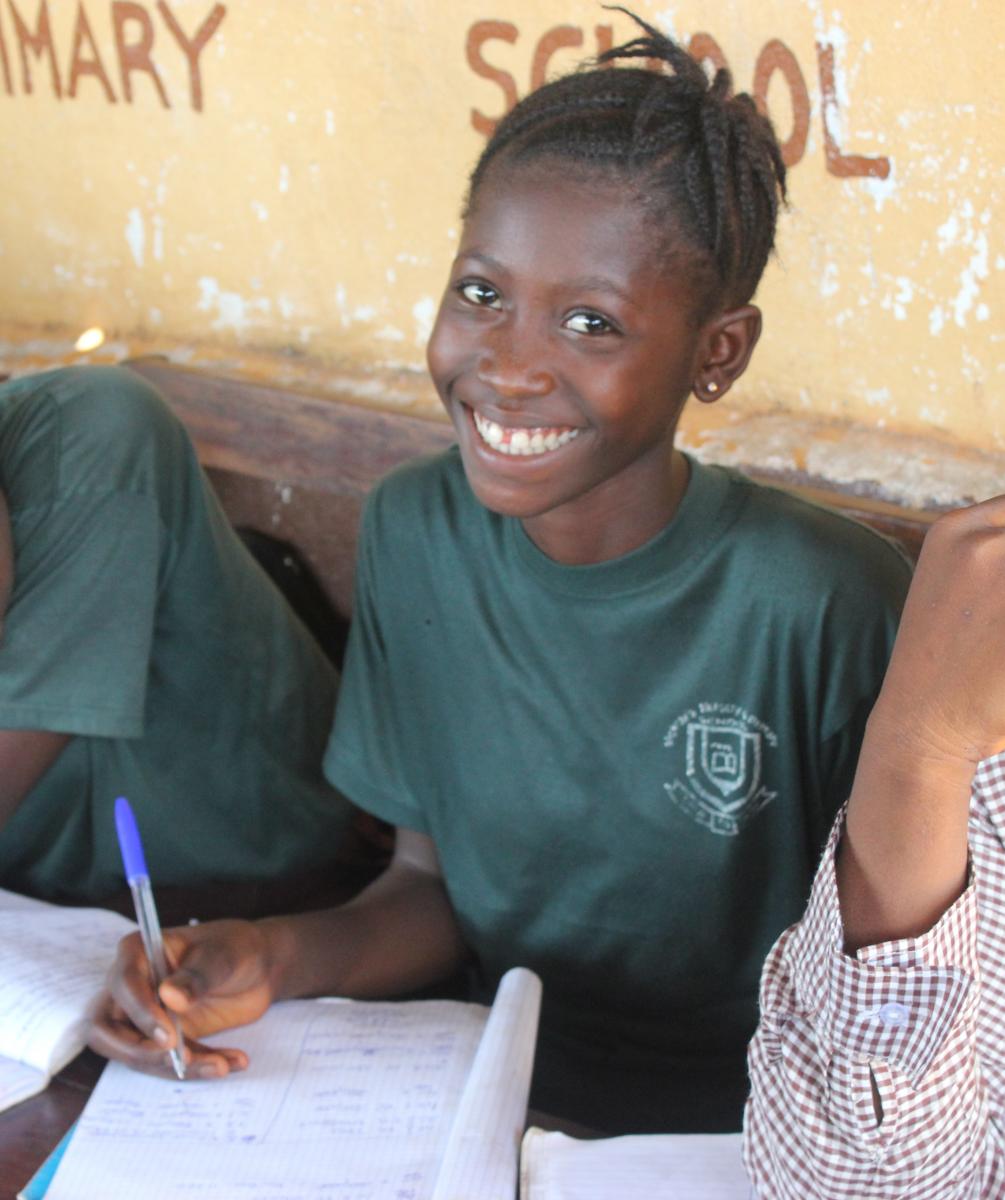West African Educational System
In some countries in West Africa (such as Sierra Leone and Nigeria), the educational system is divided into four stages (6334 education system)

Primary education lasting six years; and normally starts from age 6, Junior secondary education lasts for three years, Senior secondary education or technical vocational education lasts for three years, and University or other tertiary education lasts for four years. In some cases five for engineers, and seven years for Medical students, etc. See Wikipedia article - Education in Nigeria
Primary education lasts six years (Class 1 - Class 6)
There are three terms in every academic year and Students take class exams to be promoted to the next level. After five years, students use their sixth year in primary school to take the National Primary School Examination (NPSE) and pass before they are promoted to junior secondary school.
Junior secondary education lasts for three years (JSS1- JSS3)
There are three terms in every academic year and Students take class exams to be promoted to the next level. Similarly, students in third forms in junior secondary school are required to take the Basic Educational Certificate Examination (BECE) and pass before promoting to senior secondary school.
Senior secondary education or technical vocational education lasts for three years (SSS1- SSS3)
Similarly, students in their first forms in senior secondary school take class exams before promoting them to the next level. During their third year, they are required to take the West African Senior Secondary school certificate Examination (WASSCE) and obtained a university requirement; which is five credits including Mathematics and English before enrolling into the University to pursue a four years degree course or its equivalent.
University or other tertiary education lasts for four years
For students who obtain university requirements, they apply to be enrolled in various areas of study. Qualified students are shortlisted and contacted for interviews. Acceptance letters are issued to students who pass interviews.
There are two semesters in Sierra Leone’s University Calendar. Each semester lasts for approximately five months: the first semester runs from October to February and the second semester runs from April to August. Students take class exams at the end of every semester and should have a grade point (GPA) of 3.00 and above to be promoted to the next level. Students in their fourth year usually write a dissertation or final paper before graduation.
How challenging is it to attend College in West Africa?
West African students do NOT have the ability to get a college loan. There is no such thing as a college loan or FAFSA. In order to attend college, students must pay cash in advance of attending that semester. There are some very limited scholarship opportunities, - in Sierra Leone they are primarily for second-year students. So in order for a student to have the opportunity to go to college, their families must be able to pay for the entire first year of college. And if they have excellent grades they have a small possibility of receiving a government-provided scholarship for their second year onwards. This is why it is so crucial for students in West Africa to receive support from donors and sponsors through their college years.
Computer Training & Personal Laptops- Why are they Necessary?
Personal laptops also become increasingly important for older students in order for them to do their classwork and homework. There is an increasing demand for older students to have a personal laptop as technology plays a bigger role in higher education.
Laptops are expensive in Sierra Leone so the best way to get personal laptops to students who need them is to purchase them within the US and ship them to Sierra Leone. Shipping can take up to 12 weeks.
With the time lag between purchasing a laptop and getting it into the hands of the student, we are working to order laptops in advance. The older students will receive a personal laptop after completing computer training at the Develop Africa Sierra Leone (DASL) Computer Lab. You can learn more about computer training here.
The recommended age for a student to take computer classes can be as early as passing the BECE exam to enter Senior Secondary School or at any point in their education after that. For students under JSS3, kindles are recommended instead of a personal laptop
Personal laptops can be donated or purchased for a particular student or donated to the students that are in most need of a personal laptop. There are suggestions below, but they are not required. If you have a refurbished laptop you would be interested in donating, please reach out to us at amy@developafrica.org. Or if you would like to purchase a different laptop, please let us know what you are interested in purchasing and we can let you know if it will work for a student in Sierra Leone.
https://www.amazon.com/HP-Dual-Core-Bluetooth-GalliumPi-Accessories/dp/B08K8F7CPL/ + shipping ($40)
https://www.amazon.com/ASUS-Business-Student-Computer-Accessories/dp/B08S7814ZB/ + shipping ($40)
OR
Develop Africa can purchase a refurbished laptop and provide this to the student child. Cost $280. This cost includes shipping.
How do students with personal laptops utilize them if they have no electricity or internet?
While electricity is intermittent, students may have power perhaps 30 to 50% of the time depending on where they live. Laptops are also useful offline for academic-related purposes.
The way most students would do this is they work on a document at home on their laptop, then go to an internet cafe and transfer assignments on a USB disk and then use a computer at a cafe to submit their work. Students can also take their laptops to an internet café somewhere in town and pay to get connected to the internet while charging their laptops at the same time. Also, most Universities in Sierra Leone have access to electricity therefore university students have the access to electricity supply and can recharge their computer on campus and later use it in their homes.

